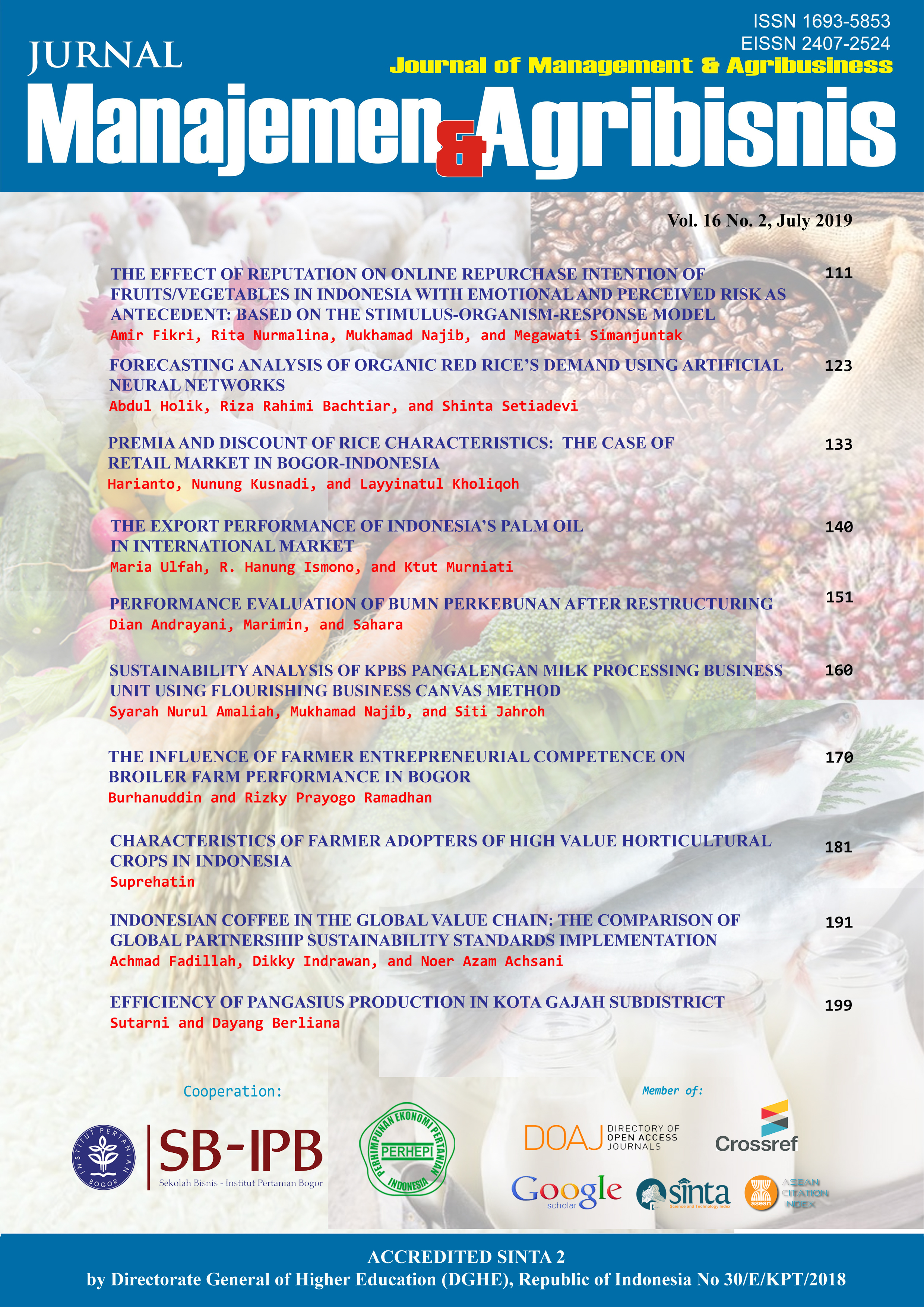Indonesian Coffee in The Global Value Chain: The Comparison of Global Partnership Sustainability Standards Implementation
Abstract
Global partnerships based on sustainability standards compiled by international NGOs are needed to achieve social, economic and environmentally sustainable development, as well as to deal with global uncertainty in trade and business of agricultural commodities, including coffee in Indonesia. This paper aims to compare the implementation of global partnership standards in coffee between Indonesia and other producer countries. The Study focused on sustainable standard-compliant in coffee such as 4C and Organic certification standards. Trade and sustainability map tools were described. The findings demonstrate that there were only 8 percent and 9 percent of the Indonesian coffee area certified by 4C and Organic, respectively. Indonesia placed at number fourth of 4C implementation in the worldwide after Brazil, Colombia, and Viet Nam. Indonesia is also placed at number fourth of Organic implementation in the worldwide after Mexico, Ethiopia, and Peru. To compete in the potential market, Indonesia’s commitment to implement sustainable standard-compliant in coffee is needed. Therefore, Indonesia has to increase the coverage of sustainability standards certified area to meet the global market demand. The government also should implement the right policies and programs to enhance the sustainability compliance of national coffee stakeholders.
Keywords: coffee, global trade partnership, sustainability standards, global value chain
Authors
Authors who publish with this journal agree to the following terms:
- Authors retain copyright and grant the journal right of first publication with the work simultaneously licensed under a Creative Commons Attribution License that allows others to share the work with an acknowledgement of the work's authorship and initial publication in this journal.
- Authors are able to enter into separate, additional contractual arrangements for the non-exclusive distribution of the journal's published version of the work (e.g., post it to an institutional repository or publish it in a book), with an acknowledgement of its initial publication in this journal.
- Authors are permitted and encouraged to post their work online (e.g., in institutional repositories or on their website) prior to and during the submission process, as it can lead to productive exchanges, as well as earlier and greater citation of published work (See The Effect of Open Access).

